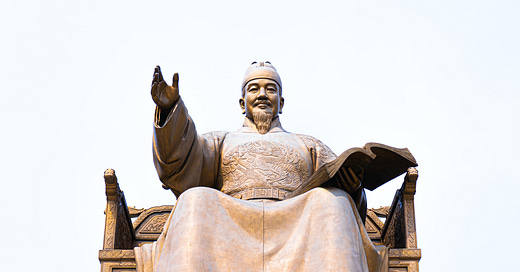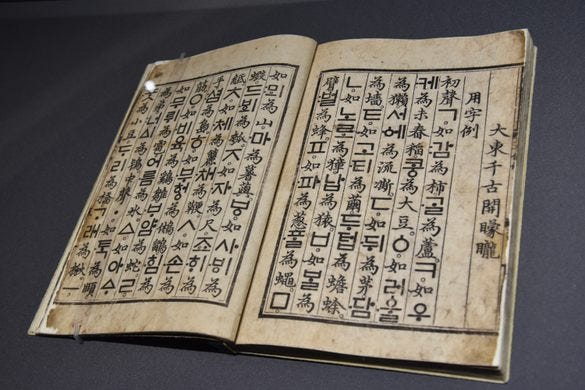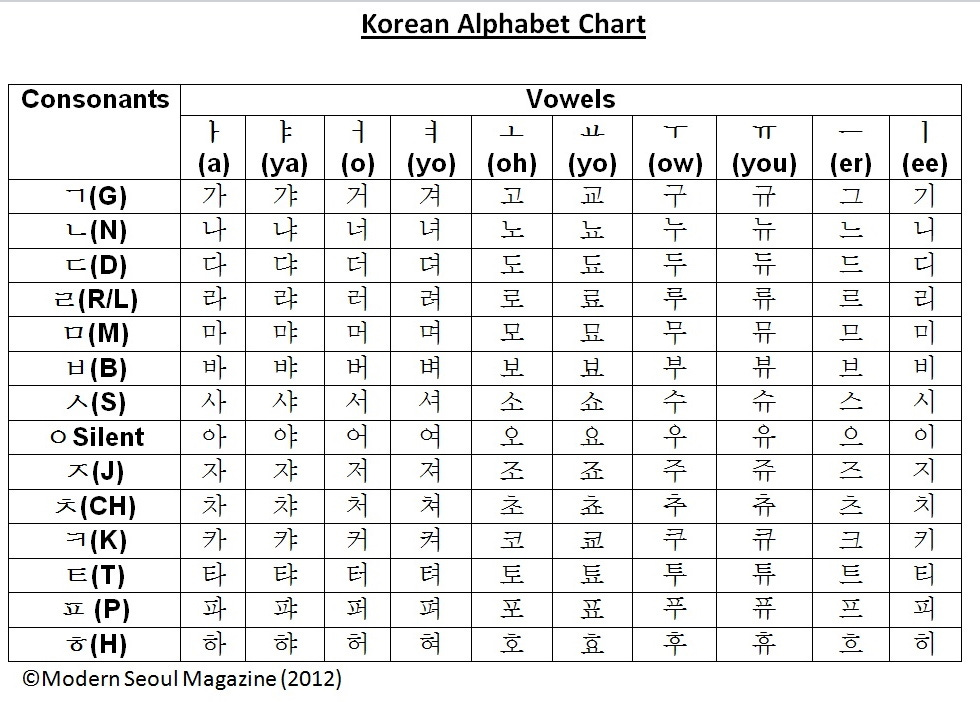On October 9, 1446, in the verdant heart of the Korean Peninsula, a monumental cultural shift was set in motion that would forever redefine Korea’s literacy narrative. Under the visionary reign of King Sejong the Great, a groundbreaking script known as Hangul was unveiled to the Korean populace. Destined to bridge the gaping chasm of illiteracy rampant in the society of the Joseon Dynasty, Hangul was more than just a script; it was a key to unlocking the intellectual potential of a nation.
Prior to Hangul, the Korean literati predominantly relied on Classical Chinese characters, a script that was complex and arcane to the common folk. This linguistic elitism fostered a cycle of illiteracy among the lower strata of society, reserving the power of written expression for the nobility and the scholarly class.
King Sejong, a benevolent and insightful monarch, perceived the inherent inequality and societal stagnation birthed by these linguistic barriers. Embracing a vision of an enlightened nation, King Sejong embarked on an audacious endeavor to craft a script that was intuitive, easy to learn, and reflective of the Korean linguistic ethos.
The genius of Hangul lay in its scientific design, mirroring the phonetic nuances of the Korean language. Its simplicity enabled a rapid dissemination of literacy, shattering the erstwhile hegemony of the scholarly class over written expression. This intuitive script democratically opened the floodgates of knowledge, expression, and cultural blossoming to the common people, propelling Korea onto a path of intellectual awakening and cultural renaissance.
The unveiling of Hangul on October 9 was not merely an act of linguistic innovation; it was a profound demonstration of King Sejong’s love for his people and his indomitable resolve to foster an era of enlightenment. This epoch-making event is commemorated annually in South Korea as Hangul Day, a heartfelt tribute to King Sejong’s enduring legacy and the indelible imprint of Hangul on Korean identity.
As we traverse the annals of October 9, the story of Hangul emerges as a resplendent chapter, imbued with the spirit of egalitarianism and the ceaseless quest for societal advancement. The nobility’s initial resistance to Hangul, viewing it as a threat to their traditional privilege, further underscores the revolutionary impact of King Sejong’s initiative.
Through the lens of history, King Sejong’s audacious initiative on this day manifests as a timeless narrative of visionary leadership and the transformative power of literacy. The saga of Hangul is not merely a tale of linguistic innovation, but a resonant narrative of how a script could spark a societal revolution, embodying the hopes of a nation for knowledge, equality, and a brighter future.







Well done! Hangul should be celebrated more widely: it's the only time I know of where a scientific approach was used to start all over with a written language (prior to the 20th century, anyway).